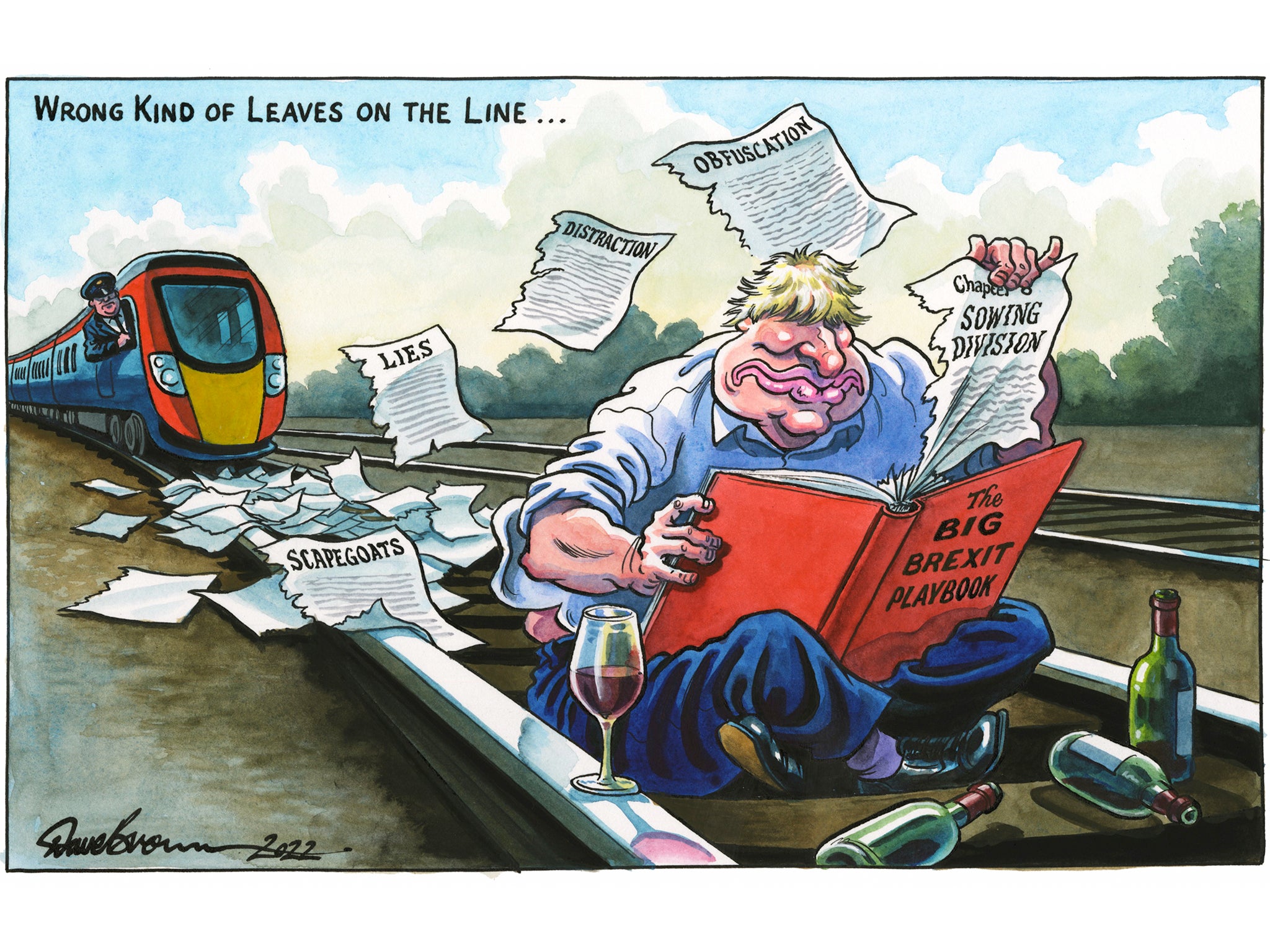It was in September 2020 that the prime minister sent an apparently sincere message by video (lockdown restrictions applied) to the National Rail Awards, thanking what he called the “railway family” for their “heroic efforts”.
It has not, as they say, aged well: “If we needed any more proof that our railways are full of brilliant and determined individuals, then just look at the way the rail industry has risen to the challenge of this crisis ... keeping people safe with everything from one-way systems, deep cleaning, encouraging people to wear face coverings, of course – an outstanding feat the like of which has never been undertaken before … moving goods around the country, keeping a vital service running for all the doctors, nurses, social care workers, shop workers – everybody who physically had to get on with their jobs. So, I want to say a huge thank you, and a heartfelt thank you.”
Can this be the same prime minister whose ministers now go around quoting misleading statistics that carry a strong implication that the “railway family” is vastly overpaid, and suggesting that the “heroes” who happen to be exercising the right to withdraw their labour should be forced to work in order to maintain a minimum service on pain of being replaced by agency staff?
It is an interesting coincidence that so many of the public sector workers who served the nation with such distinction during the pandemic should now be the target of ministerial abuse as they seek a pay rise that even approaches inflation, which is currently galloping towards the 11 per cent mark.
Transport workers, local authority refuse collectors, teachers and nurses were all on the “front line”, and all put their lives at risk – particularly in the early days of Covid, when aside from there being insufficient PPE, there were no vaccines, no treatments, and the disease was poorly understood. It is as if the “clap for the NHS heroes” campaign never happened. These workers are not being given a heroes’ welcome by this government.
In the court of public opinion, the government and its media allies are conforming to the usual pattern – smearing the workers as fat cats and their leaders as Bolshevik revolutionaries, and setting worker against worker. They seek to blame the Labour Party for failing to resolve the strikes, rather than the transport secretary, Grant Shapps –the poor man’s Norman Tebbit – who is actually in charge.
They call on Sir Keir Starmer to get the strikes called off, even though the RMT Union is no longer affiliated to Labour, and its leader, Mick Lynch, has no more time for Sir Keir than he does for Mr Johnson.
It is an absurdity, and the sooner Mr Shapps drops the pretence that the strikes are “nothing to do with me, guv”, the better. He says that if there were a one-in-a-million chance that he could help, he’d be there at the talks immediately. The fact that he isn’t speaks loudly to the redundancy of his own role in this matter.
The public know well enough that much of Britain’s railway structure is owned by the state; that all of it, including fares, timetables, safety, franchising and competition, is controlled by the state; and that some operating companies specify that no pay deal may be signed without the written permission of Mr Shapps. The idea that this is a normal private-sector dispute is ridiculous, and persisting with it is, aside from making ministers look foolish, only serving to prolong the argument.
To keep up to speed with all the latest opinions and comment sign up to our free weekly Voices Dispatches newsletter by clicking here
In the calm but determined figure of Mr Lynch, the RMT has found itself a champion who doesn’t take any nonsense from the media, the train industry bosses, or Mr Shapps. He has something of his predecessor, the late Bob Crow, about him – Crow having been the most effective trade unionist of the past three decades. That is commendable in a leader acting to protect his members, but Mr Lynch does also need to be sensitive to public sentiment.
Many people, faced with the same cost of living crisis, might wish that they had as formidable a figure as Mr Lynch looking out for them. However, he shouldn’t push his luck. If the RMT has public opinion on its side, and he keeps it there, Mr Johnson is certain to do what he usually does – cave in and execute another U-turn.
But if the union emerges as callous and greedy, it will only make Mr Johnson look as though he is on the side of the hard-pressed public, who are simply trying to get to work, or to a funeral; to an operation or an exam. Obstinacy isn’t always an attractive or useful quality. Like an experienced train driver, Mr Lynch will need to apply the brakes in good time.







Join our commenting forum
Join thought-provoking conversations, follow other Independent readers and see their replies
Comments